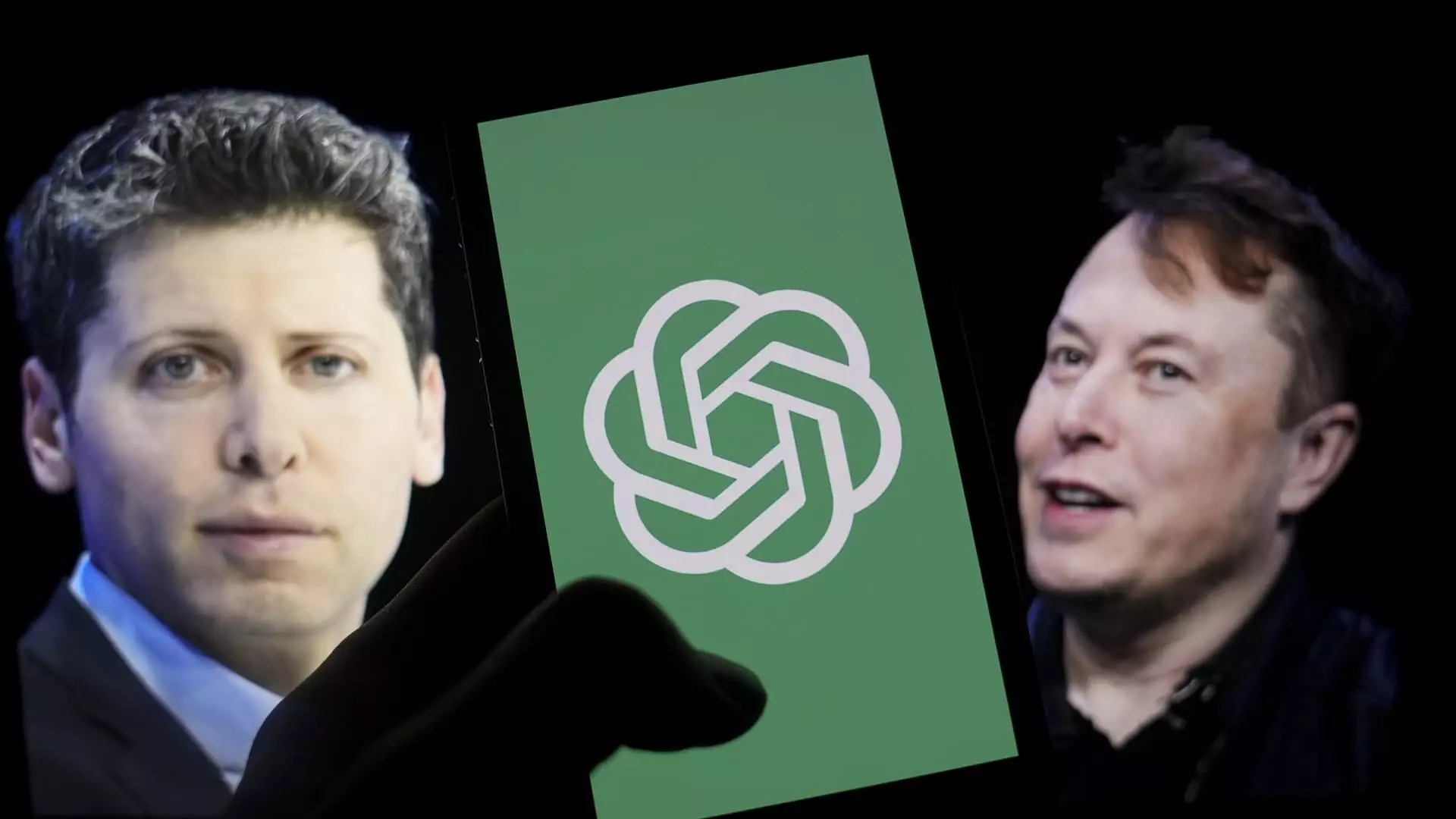The dynamics within the artificial intelligence industry are rapidly evolving, and few narratives are as compelling as the ongoing legal feud between Elon Musk and OpenAI. In recent developments, Musk, along with his AI startup, xAI, is pushing for legal action against OpenAI’s efforts to transition into a fully for-profit entity. This request, filed in federal court, adds a significant twist to a saga marked by competition, investments, and complex corporate maneuvers.
The Core of Musk’s Allegations
Musk’s attorneys have leveled serious charges against OpenAI, alleging that the organization has acted in violation of antitrust laws by effectively forcing investors to abstain from funding competing AI ventures—specifically, Musk’s own xAI. This notion of a “group boycott” is central to Musk’s argument, suggesting that OpenAI’s actions are not merely competitive but rather anti-competitive in nature, limiting market opportunities for rivals.
Musk’s legal team contends that such practices are tantamount to racketeering under federal law. They allege that the advantages OpenAI gained from their relationships with investors should not enable them to stifle competition. This paints a picture of an industry grappling with issues of fairness and transparency, raising questions about how dominant players potentially misuse their power.
Since its inception as a non-profit in 2015, OpenAI has undergone notable transformations, initially adopting a capped-profit model before moving towards becoming a fully for-profit public benefit corporation. This upcoming change aims to heighten investor appeal while retaining a semblance of its original non-profit intentions. However, this shift raises important ethical questions: can a company that started with altruistic goals genuinely prioritize profit without compromising its foundational mission?
The transition has garnered significant investments, with Microsoft leading the charge by investing nearly $14 billion into OpenAI. While these financial injections have enabled OpenAI to enhance its technology and capabilities, they also solidify Microsoft’s influence over OpenAI’s strategic direction, leading to broader consequences for competition within the AI landscape.
Elon Musk has not been idle amidst these legal disputes. His own startup, xAI, launched in July 2023, showcases his intention to remain a key player in the AI sector. With a valuation of $50 billion and fundraising ambitions of up to $6 billion, Musk is not just focusing on tech innovation but also strategically positioning xAI in response to OpenAI’s aggressive market capture.
The release of xAI’s Grok chatbot is a direct assertion of competitive presence, aiming to challenge established technologies like OpenAI’s ChatGPT. This competitive spirit underscores Musk’s broader vision for AI, indicating he seeks to redefine the industry landscape in that context.
The Regulatory Environment and Future Implications
Adding a layer of complexity is the federal interest in monitoring the growing influence of AI corporations over the marketplace. The FTC’s announcement of a market inquiry into the partnerships between AI developers and major cloud service providers signals a more significant governmental push towards regulation. By scrutinizing these relationships, the FTC aims to ensure that competitive practices do not turn monopolistic.
The implications of Musk’s legal action could extend beyond their immediate outcome. A victory for Musk could reshape how AI enterprises interact with investors, redefining the parameters of fair competition among AI firms. Conversely, a ruling in favor of OpenAI could embolden other tech giants to consolidate their positions even further, stifling emerging competitors not just in AI but across the technology sector.
The Bigger Picture: Competition and Innovation in AI
The rivalry between Musk and OpenAI is emblematic of broader trends in the artificial intelligence market, where competition is heated and innovation is paramount. As generative AI is projected to surpass $1 trillion in revenue within the next decade, the stakes are high. Investments this past year surged by 500%, underscoring the urgency for firms like xAI to secure their place in a fast-evolving landscape.
Such competitive intensity encourages innovation but also raises questions about ethical practices and corporate responsibility within the industry. Musk’s legal claims, while tactical, echo a growing concern about the balance between profit-driven motives and the original vision of AI as a tool for the collective benefit of society.
As the legal confrontation unfolds, it serves as a reminder of the challenges inherent in the rapid evolution of the AI industry. Musk’s fight against OpenAI is more than a personal vendetta; it encapsulates the tensions between innovation, competition, and ethical considerations in technology. The outcome of these proceedings could very well determine the future landscape of AI and the principles that govern it, making it a pivotal moment for all stakeholders involved.

